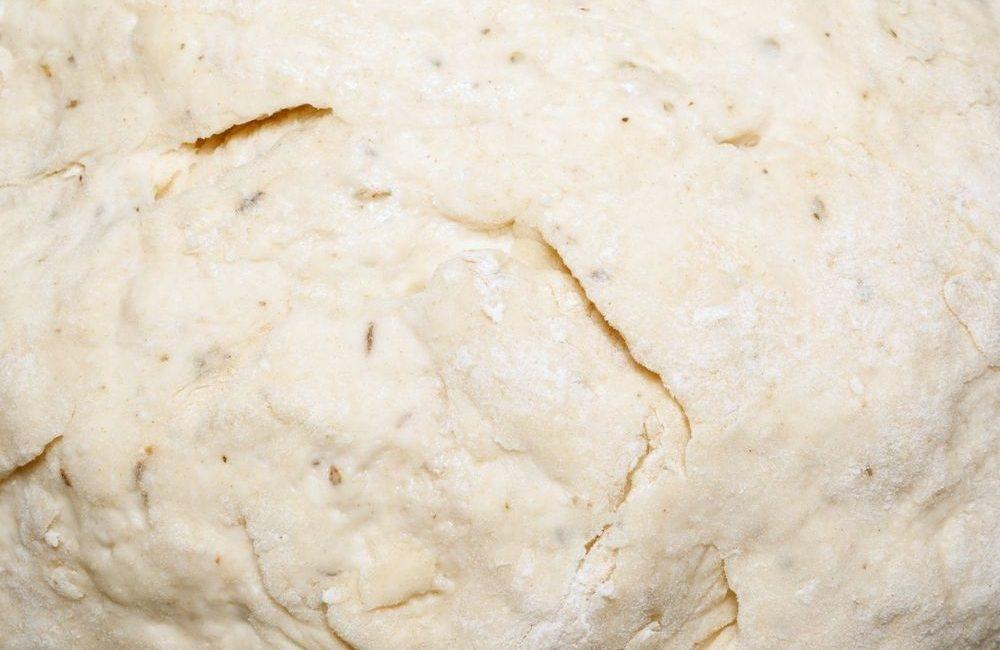Hey there, cookie lovers. 🍪 Ever found yourself with a craving for homemade cookies but not enough time to whip up a batch from scratch? We’ve all been there!
That’s where the magic of homemade cookie dough comes in. In this blog post, we’re diving into the delicious world of homemade cookie dough, exploring how long it can actually last in the fridge, and sharing some handy tips to keep your cookie dough game strong.
So, let’s get ready to satisfy those sweet cravings while keeping things convenient and tasty!
Understanding the Longevity: Homemade Cookie Dough Last Longer Than 4 Days in the Fridge or Not? 🍪
Homemade cookie dough can typically last longer than 4 days in the fridge if stored properly.
The exact shelf life depends on several factors, including the ingredients used and how it’s stored.
Here’s some context and specific information:
Ingredients: The type of ingredients in your cookie dough can affect its shelf life. Doughs made with eggs and dairy, for example, may not last as long as vegan cookie dough or dough made with substitutes.
Storage: Proper storage is essential. To extend the shelf life of your homemade cookie dough, follow these steps:
Wrap it well: Place the dough in an airtight container or cover it tightly with plastic wrap. Ensure that no part of the dough is exposed to the air.
Chill promptly: Put the dough in the refrigerator within two hours of making it. This helps slow down bacterial growth.
Use a cold fridge: Make sure your refrigerator is set to a temperature of 40°F (4°C) or lower. A colder temperature will help preserve the dough.
Duration: Homemade cookie dough can generally be kept in the refrigerator for up to 3-5 days.
After this period, it may start to lose its freshness and flavor. However, if you want to store it for longer, you can freeze it.
Freezing: To store cookie dough for an extended period, shape it into individual cookie portions and freeze them on a baking sheet.
Once they’re frozen, transfer the cookie dough portions to a freezer-safe bag or container. Frozen cookie dough can last for several months in the freezer.
When you’re ready to bake, simply remove the desired number of portions and bake them from frozen, adding a few extra minutes to the baking time.
Remember to use your best judgment and check for any signs of spoilage, such as off smells or unusual textures, if you’re unsure about the freshness of your cookie dough.
Proper storage practices can help ensure that your homemade cookie dough remains safe and delicious for as long as possible.
Let’s dig down.
Let me dive deeper and elaborate further on all the points mentioned. Firstly, let’s delve deeper into the importance of ingredients and storage when it comes to extending the shelf life of homemade cookie dough:
1. Ingredients:
Eggs and Dairy: Cookie dough recipes that contain eggs and dairy products, such as butter or milk, are more perishable due to the moisture and protein content in these ingredients.
Eggs, in particular, can be a breeding ground for bacteria like Salmonella if not handled properly.
Therefore, cookie dough with eggs and dairy should be consumed or baked within a shorter time frame.
Vegan or Substitutes: Vegan cookie dough or dough made with dairy and egg substitutes tends to have a longer shelf life.
Ingredients like vegetable oil, non-dairy milk, or flaxseed meal can replace eggs, while plant-based butter substitutes are often used in place of dairy butter.

These substitutions can reduce the risk of spoilage and extend the dough’s refrigerator life.
2. Storage:
Airtight Container or Plastic Wrap: To preserve the freshness and prevent the dough from drying out or absorbing other odors in the fridge, it’s crucial to wrap it well.
Use an airtight container or tightly cover the dough with plastic wrap.
Ensure that there is no part of the dough exposed to the air, as this can lead to moisture loss and potential freezer burn.
Prompt Chilling: After making the cookie dough, it’s important to transfer it to the refrigerator promptly, ideally within two hours.
This rapid cooling process helps inhibit the growth of harmful bacteria.
Leaving the dough at room temperature for an extended period can increase the risk of spoilage.
Refrigerator Temperature: Maintaining the right refrigerator temperature is critical. Set your fridge to 40°F (4°C) or lower.
This temperature range inhibits bacterial growth and helps keep the dough safe for a longer period.
If your refrigerator is warmer, it can accelerate the spoilage of the dough.
By paying attention to both the ingredients used and the storage practices, you can maximize the shelf life of your homemade cookie dough.
If you want to keep it for an extended period beyond the typical 3-5 days, consider freezing the dough into individual portions.
This way, you can enjoy freshly baked cookies whenever you crave them without compromising safety or taste.
Let’s explore the concepts of duration and freezing in more detail when it comes to homemade cookie dough:
3. Duration:
Refrigerator Shelf Life: As a general guideline, homemade cookie dough can typically be stored in the refrigerator for a period of 3-5 days.
During this time, the dough should remain safe to eat, but its freshness and flavor may start to deteriorate gradually.
Quality Over Time: Over the course of those 3-5 days, the dough may become drier, lose some of its flavor, or even develop a slightly different texture.
It’s important to understand that while it may still be safe to consume after this period, the quality of the cookies you bake from it may not be as good as when the dough was freshly made.
4. Freezing:
Extending Shelf Life: To extend the shelf life of your cookie dough significantly, freezing is an excellent option.
Freezing helps preserve the dough’s freshness, flavor, and texture for a much longer period.
Portioning for Freezing: When preparing cookie dough for freezing, it’s advisable to portion it into individual cookie-sized pieces. This makes it convenient to take out and bake only what you need without thawing the entire batch.
Freezing Process: After portioning, place the cookie dough pieces on a baking sheet and freeze them until they are solid. This helps prevent them from sticking together.
Once frozen, transfer the portions to a freezer-safe bag or container, and make sure to remove as much air as possible to minimize the risk of freezer burn.
Storage Duration: Frozen cookie dough can typically be stored in the freezer for several months, often up to 2-3 months or even longer.
Properly frozen dough maintains its quality and can be baked directly from the freezer without thawing.
Baking from Frozen: When you’re ready to bake, simply remove the desired number of frozen dough portions and place them on a baking sheet.
You may need to add a few extra minutes to the baking time compared to fresh dough, but otherwise, the process remains the same.
By freezing homemade cookie dough, you can enjoy freshly baked cookies at your convenience for an extended period, ensuring that they taste just as delicious as when you first prepared the dough.
A complete tabular on this topic here.
Here’s a complete table summarizing the factors that can affect the shelf life of homemade cookie dough in the fridge:
| Factors | Impact on Shelf Life | Recommendations |
|---|---|---|
| Ingredients | Eggs and dairy can reduce shelf life due to moisture and potential bacterial growth. Vegan or substitutes extend shelf life. | Consider using egg substitutes and plant-based ingredients if you want to store dough for an extended period. |
| Storage | Proper storage practices are crucial to maintain freshness. | Wrap dough airtight, chill promptly (within 2 hours of making), and ensure the fridge is set to 40°F (4°C) or lower. |
| Duration in Fridge | Typically 3-5 days, but quality may deteriorate over time. | Plan to use or freeze the dough within this timeframe to enjoy the best taste and texture. |
| Freezing | Freezing dough can significantly extend its shelf life. | Portion dough, freeze on a baking sheet, then transfer to a freezer-safe container. Frozen dough can last for several months. Bake from frozen with a few extra minutes of baking time. |
This table provides a clear overview of the key factors influencing the shelf life of homemade cookie dough in the refrigerator and offers recommendations for extending its freshness and safety.
My Final words.
In conclusion, homemade cookie dough can typically be safely stored in the fridge for 3-5 days.
After this period, its quality may decline. To extend its shelf life, consider using ingredients like egg substitutes and vegan options.
Proper storage practices, such as airtight wrapping and prompt chilling, are crucial.
For longer storage, freezing the dough in individual portions is a practical solution, allowing it to last for several months while maintaining its freshness and flavor.

Whether you’re a passionate baker or simply seeking sweet inspiration, I’m here to provide you with valuable insights, mouthwatering recipes, expert tips, and more to make your cookie adventures with Mike truly delightful and scrumptious. You are on the true exciting cookie-filled side.




